Night of Ideas 2024 | Ball Theater in Chicago | Call for Recordings
Art & Design
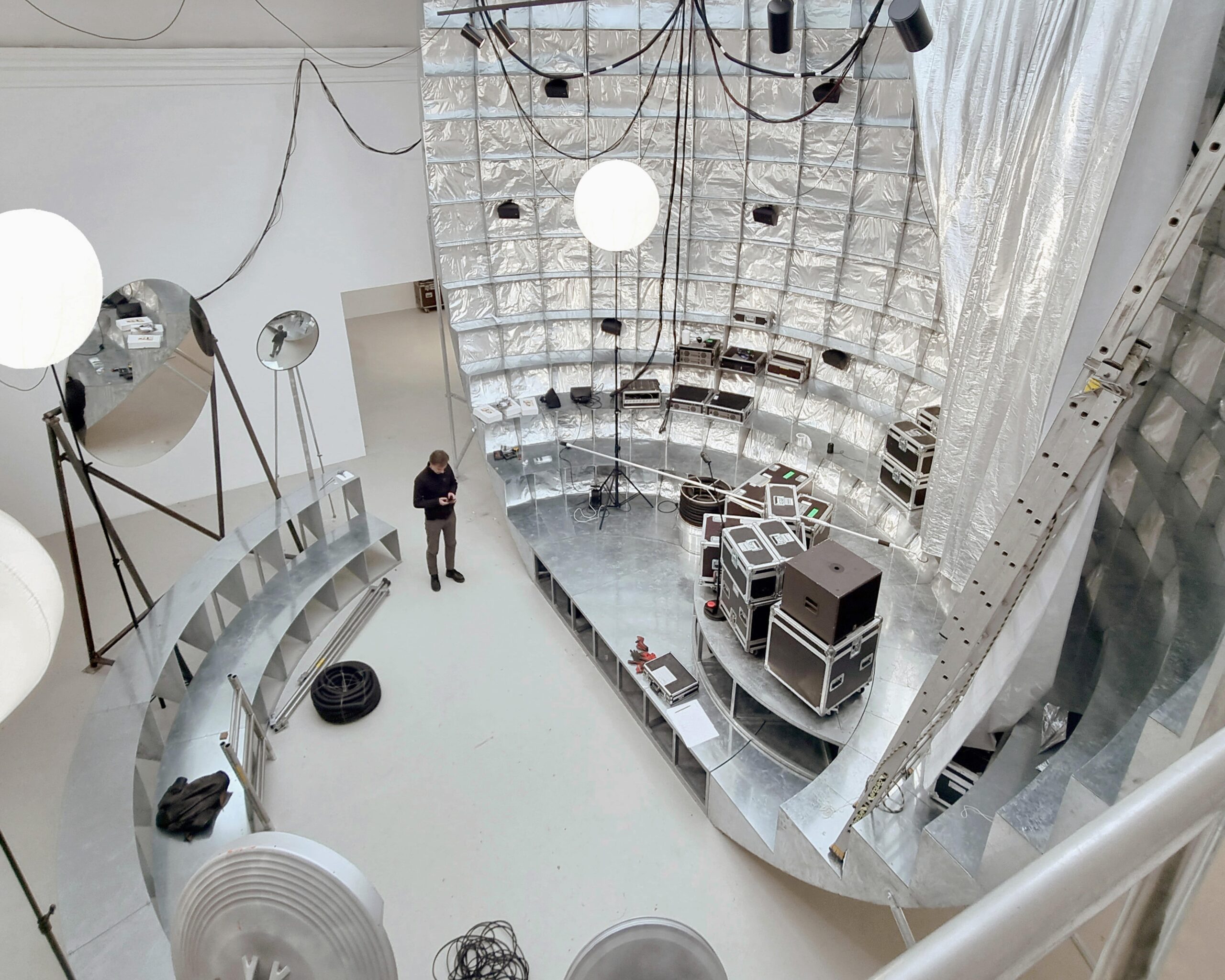
Ball Theater Venezia 2023 ©Muoto-Georgi-Stanishev
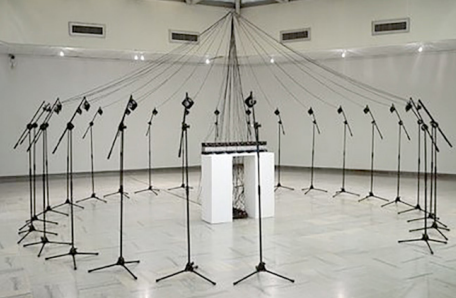
Ball Theater Chicago project ©Muoto
By Villa Albertine Chicago
Villa Albertine invites you to contribute to Muoto’s visionary installation “The Ball Theater” at the 2024 Night of Ideas in Chicago.
In light of Chicago’s 2024 Night of Ideas, Muoto‘s visionary installation “The Ball Theater” will travel from The Venice Architecture Biennale to the Chicago Architecture Center in February. The installation will be composed of 40 microphone stands, each holding a suspended speaker. The speakers, which will be handheld or placed on stands, will echo “World News” (Nouvelles du Monde), in French.
In addition to the 150 collected recordings that were gathered for the 2023 Venice Architecture Biennale, individuals, local associations and institutions , schools and groups in Chicago and beyond are now invited to contribute to this project through an open call. Recordings will be selected and curated by Muoto/Radio Utopia project coordinators, who will then proceed to load the chosen recordings onto the installations’ 40 different speakers.
Proposal requirements
Proposals can be of any kind: creations, fiction, interviews, soundscapes, archives, etc. They will be selected on the basis of production quality and content in line with the proposed themes. A true sound laboratory for a night, the Ball Theatre/Radio Utopia project will give us a chance to hear how the world sounds and the echoes of “World News,” i.e. sound recordings of community ambiances, neighborhood atmospheres, futuristic or nostalgic stories, extracts of conversations…
Each recording must be no longer than seven minutes in length. The Ideal format is wav, aiff – stereo.
A title and short introductory text (500 characters maximum) is required.
A short biography about the author(s) (300 characters maximum per author) is required.
Please send your recording(s) to nicolas.tixier@grenoble.archi.fr and carlotta.daro@paris-malaquais.archi.fr before January 28th, 2024.
About the Ball Theater
The Ball Theater is a ground for fictional experimentation, research, and debate. It is in other terms, a radio theater. How can sound convey different realities of contemporary worlds? The Ball Theater responds to Lesley Lokko’s “Laboratory of the Future” theme, offering spectacular sound architecture, an alternative space for reflection, and a laboratory for imagination and celebration. It is a space for reflection and a laboratory for imagination and celebration, suggesting a new approach to current crises, through questioning, letting go, and the search for alternatives and imaginaries.
About Muoto Architectes
Muoto is an architectural practice founded in Paris in 2003 by Gilles Delalex and Yves Moreau. Its activities cover the fields of architecture, urban planning, design, teaching, and scientific research. Muoto’s work features minimal structures that can combine different activities, evolve in time, and merge economical and aesthetic issues. The practice is identified as a representative of a new French architectural scene described as “new realism.”
Georgi Stanishev is an architect and scenographer. His practice focuses on explorations of aesthetic languages at the crossroads of architecture, installation, and decoration. The work of his studio covers the fields of exhibition design, event design, set design, and experimentation in public space. He holds a doctorate in architecture from Université Paris-Est, UACEG, Sofia, and ENSA Paris-Malaquais, where he has taught architectural design and theory since 2011. His research and publications focus on the evolution of Soviet communism through its various moments of ideological and cultural rupture. His work examines the role of discourse on the arts and architecture in the production of political propaganda.
Georgi Stanishev is co-curator, with Studio Muoto, of the French Pavilion at the 18th Venice Architecture Biennale 2023.
In partnership with
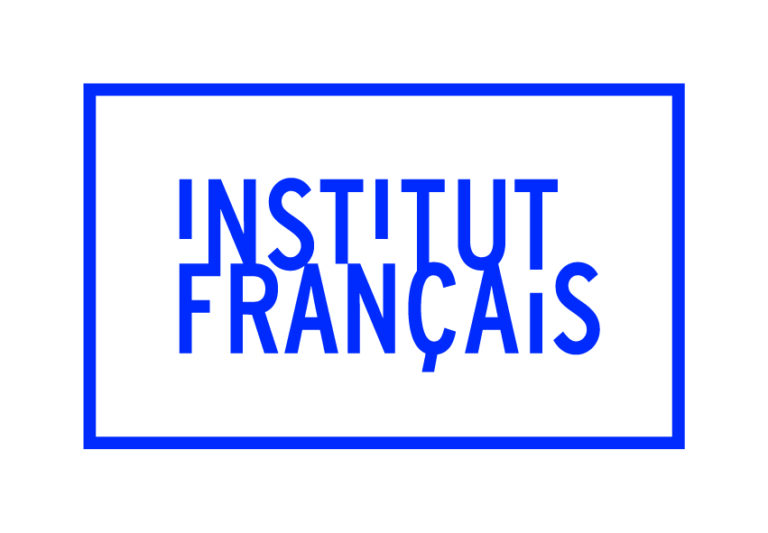
Institut français
The Institut français is responsible for France’s international cultural program. Supervised by both the Ministry for Europe and Foreign Affairs and by the Ministry of Culture, it promotes French culture abroad through cultural exchange initiatives. Operating in a space where the arts, intellectual exchange, cultural and social innovation, and linguistic partnerships interact and intersect, it is also responsible for promoting the French language and the sharing of works, artists, and ideas all over the world. The Institut français is one of Villa Albertine’s main French partners.
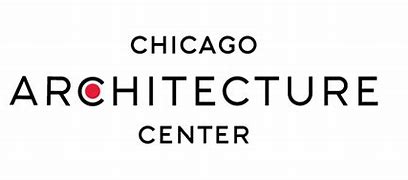
Chicago Architecture Center
The Chicago Architecture Center is the leading organization devoted to celebrating and promoting Chicago as a center of architectural innovation. As Chicago’s forum for the exchange of ideas on urban design, the CAC inspires people to participate in the building of vibrant communities and to demand the highest standard in urban design. The CAC awakens young people to achieve their potential through the discovery of architecture, engineering and design.
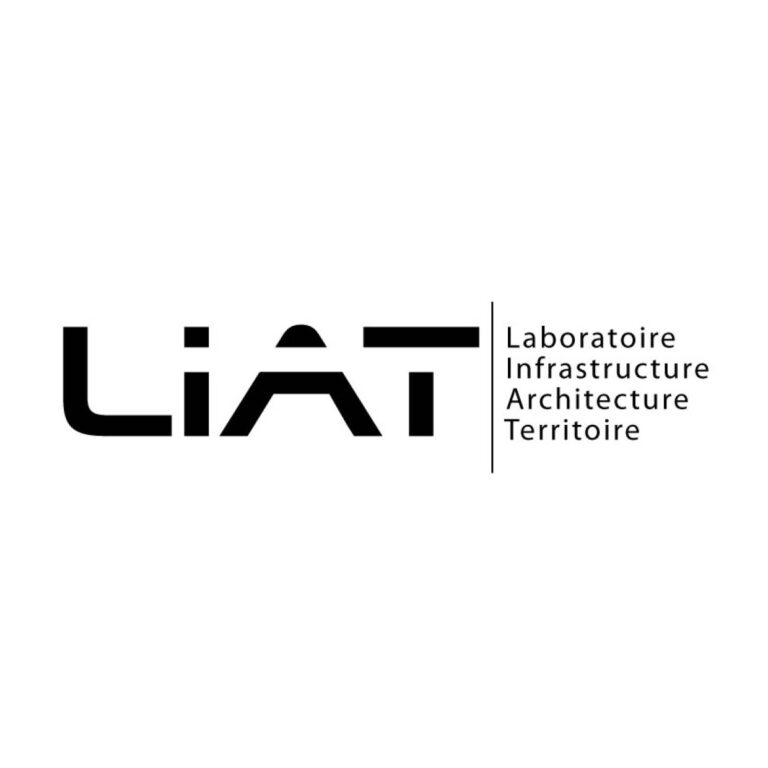
LIAT Laboratory (Paris Malaquais National Architecture School)
For over twenty years, the LIAT laboratory has been pursuing a scientific program that questions the relationship between architecture and infrastructure. It focuses on the analysis of contexts (cities, territories, landscapes) marked by the development of infrastructure and major facilities, through a specific approach based on historical research, critical analysis of projects, case studies and the creation of a history of ideas.
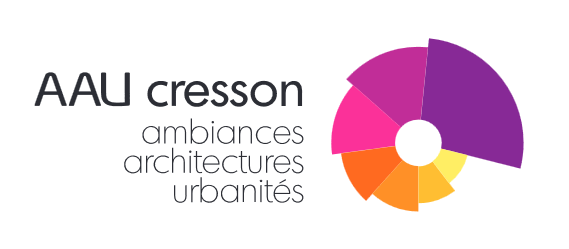
AAU_CRESSON Laboratory (Grenoble National Architecture School)
The AAU Laboratory is one of the CNRS’ UMRs, associating the National Schools of Architecture of Grenoble and Nantes, Université Grenoble Alpes and Centrale Nantes. The Centre for research on sound space and urban environment (CRESSON) is the AAU Laboratory team in Grenoble for architectural and urban research. Originally focused on sound space, CRESSON has based its research culture on a sensitive, situated approach to inhabited spaces. This research is based on original multidisciplinary methods, at the crossroads of architecture, human and social sciences and engineering sciences.
